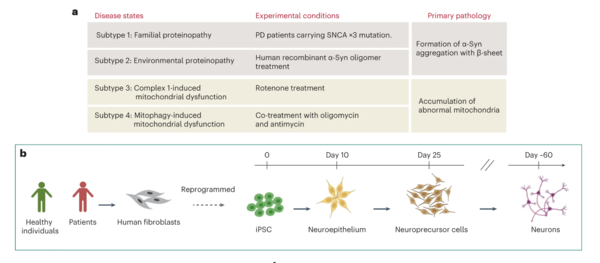Researchers at the Korea Advanced Institute of Science and Technology (KAIST) and the Francis Crick Institute of the U.K. have developed an artificial intelligence-based platform that predicts individual subtypes of Parkinson's disease patients.

Currently, the treatment of Parkinson's disease has been based on a "one-size-fits-all" approach that relies on probability without considering the individual pathology of each patient, making it difficult to improve treatment effectiveness due to the mismatch between pathological causes and treatment methods.
The platform, developed by the research team of Professor Choi Min-ee of KAIST’s Department of Brain & Cognitive Sciences, accurately predicts the pathological subtype of Parkinson's patients by learning only the nuclear, mitochondrial, and ribosomal image information of neurons differentiated from human-induced pluripotent stem cells (hiPSCs) of Parkinson's patients.
HiPSCs are cells that can be reprogrammed from adult skin cells or blood to an undifferentiated state in the fetus and subsequently differentiated into another specific cell type.
Using this platform, medical professionals can accurately diagnose patients' disease subtypes by biological mechanisms rather than outward phenotype, enabling personalized medicine and significantly improving treatment effectiveness, KAIST said Wednesday.
Furthermore, as the platform uses a high-throughput screening system, it can also serve as a pipeline for personalized drug development for pathological subtypes.
According to researchers, the platform is expected to overcome the limitations of animal models, which can't accurately mimic the human brain, such as identifying lesions in degenerative brain diseases.
Moreover, they noted that sequential imaging of targeted disease cells cultured in a dish has the advantage of tracking the sequence of pathological events and predicting drug response outcomes as the disease progresses.
"This study introduces a method to effectively train artificial intelligence with biological data obtained in the laboratory to generate a highly accurate disease subtype classification model," Professor Choi said. "This platform will also be useful for classifying subtypes of brain diseases with distinctly different symptoms among individual patients, including the autism spectrum, enabling the development of effective therapies."
The study was published in the August issue of the international journal Nature Machine Intelligence.

